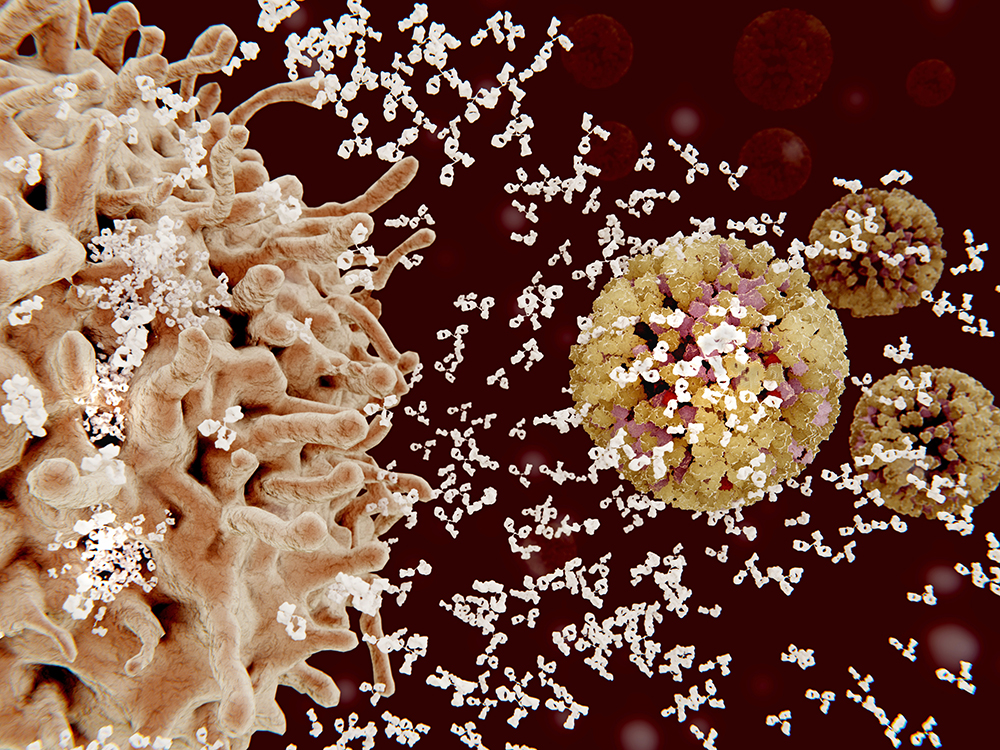Immuno Profile: Staying healthy in space
The Canadian Immuno Profile science project will be the first study to monitor astronauts' immune systems for the entire duration of their missions aboard the International Space Station (ISS). It will explore changes in immune hormones and white blood cells, the first line of defence against pathogens like bacteria and viruses.

A white blood cell (left) produces antibodies to mark viruses for attack. Altered number or function of such cells can impair immune function and lead to the development of infections, the reactivation of dormant viruses, and increased potential for allergic reactions.
Background
Living in space takes a toll on an astronaut's immune system. Many features of the environment, such as microgravity, higher radiation exposure, altered sleep cycles, and increased stress, can impact immunity. Even getting sick with a simple cold affects an astronaut's ability to concentrate on research and maintenance duties. Because of the close quarters aboard the ISS, infection can spread quickly between crewmembers.
Currently, blood samples taken for science experiments are being frozen for return to Earth at a later time. This storage process damages the delicate cells needed to study immunity. Therefore, experiments to date have only studied astronauts' immune systems before and after their flights.
Immuno Profile's scientists aim to be able to perform real time analysis of blood cells and protein biomarkers. Creating an innovative portrait of immune health during a mission will provide new insight into astronauts' health as we prepare for journeys deeper into space.
Not only do white blood cells fight infections, but they also attack cancerous cells within our bodies. They are created by bone marrow, the spongy tissue inside bones. Space-related changes in bone marrow function are being investigated by another Canadian study called MARROW.
Research team
Principal investigator
- Dr. Chen Wang, Sinai Health System, University of Toronto
Co-investigators
- Dr. Brian Crucian, NASA
- Dr. Armand Keating, University Health Network, University of Toronto
- Dr. Alexander Chouker, Hospital of the University of Munich, Germany
